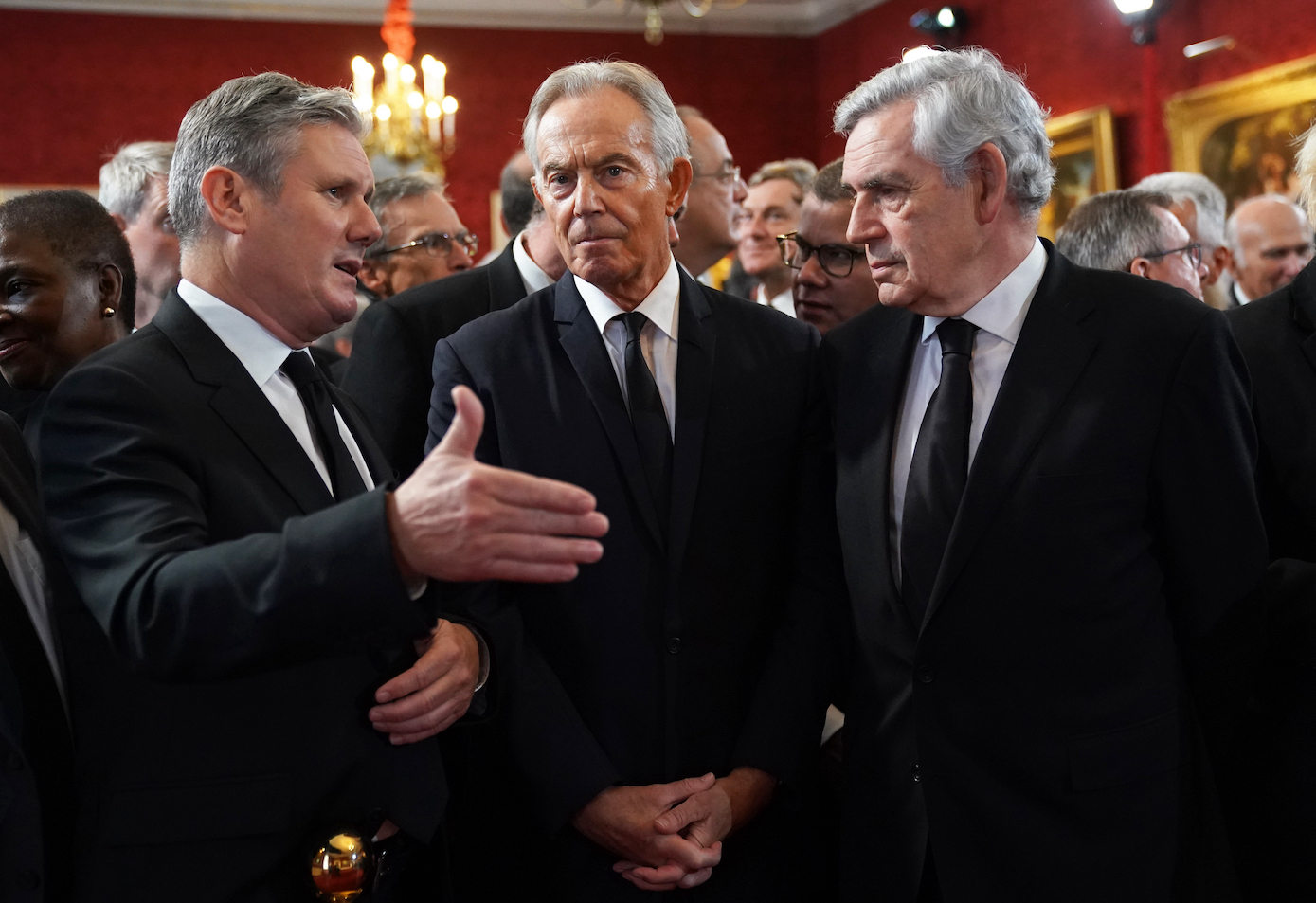When Sir Keir Starmer left his podium in east London yesterday, having announced that his predecessor would never again be allowed to stand as a Labour MP, gone was any pretence of Labour’s affinity with the Corbyn project.
It was a moment of high symbolism; a deeply serious yet carefully choreographed act of political theatre.
“The Labour Party is unrecognisable from 2019 and it will never go back,” Starmer explained at the press conference, ostensibly convened to mark the moment the Equalities and Human Rights Commission had taken his party out of special measures on antisemitism. But the moment was immediately implicated in a wider struggle, as Starmer steers the course to a 2024 general election.
The move echoed, perhaps deliberately, Tony Blair’s pledge to rewrite Clause IV at Blackpool in 1994. Starmer’s pivot against Corbyn, like Blair’s against doctrinaire socialism, was a signal of intellectual intent — marking a critical breach with the past.


The totemic “Clause IV”, referring to part of the 1918 text of Labour’s written constitution, set out the party’s ideological aims and values. It committed Labour “to secure the … common ownership of the means of production”, encapsulating Labour’s commitment to a socialist transformation of society based on comprehensive nationalisation.
But the time-honoured commitment was brushed aside in 1994 after an ideologically charged vote among the membership gave Blair the green light to rewrite the clause. In turn, the “common ownership” phrasing was ditched in favour of a new commitment to a “dynamic economy” and the “rigour of competition”. Speaking after the vote, Blair declared pointedly:
“Let no one say radical politics is dead. Today a new Labour party is being born”
Today, Blair’s symbolic pronouncement on Clause IV is remembered because it worked. The manoeuvre became a defining moment in Blair’s irresistible rise, as “New Labour” was catapulted back to power in 1997 after 18 years in divided opposition. It is little surprise that since 2010, there has been repeated speculation about whether Blair’s successors will repeat the tactic.
“I believe we can be a force for good. And that starts today”, Starmer exclaimed on Wednesday. It seemed like he was deliberately channelling Blair, paraphrasing one predecessor as he jettisoned another.
The high rhetoric of Starmer’s speech suggests the Labour leader hopes to engender a watershed — signalling, like Blair, a fundamental departure from a socialist ancien régime. Consciously casting himself in the Blair mould of the visionary leader, insightful and bringing his party with him, here was Starmer the moderniser. The subtext was clear: if you weren’t sure yet, you can back Labour now.
The speech was also about the creation of Starmer’s prime ministerial “character”; for here was the man stamping his authority on his party’s rogue elements. Indeed, as the lone individual on the platform on Wednesday, both rhetorically and visually, this a resolute demonstration of Starmer’s political power.
Pertinently, this critical moment of symbolism may not have been Starmer’s first attempt to forge his own “Clause IV” moment. The Labour leader may have first tried this in the summer, refusing to let frontbenchers join picket lines — doubling down by sacking shadow transport minister Sam Tarry for his disobedience.
In some senses, Starmer’s speech on Wednesday moved beyond the emblematic nature of Blair’s Clause IV manoeuvre. Unlike Blair’s symbolic gesture, the practical consequences of Starmer’s move could be immediate as Corbyn forges a new disruptive path through the political wilderness. By 2024, Starmer will likely face the threat of electoral Corbynism, both in Islington North and potentially beyond. Insiders suggest this would signal another positive break with the past, but the psephology may prove complicated.
But for now there is no doubt: Starmer has found a clear break with the past, one replete with symbolic trappings. Already riding high in the polls, Sir Keir has found his Clause IV “moment”.












